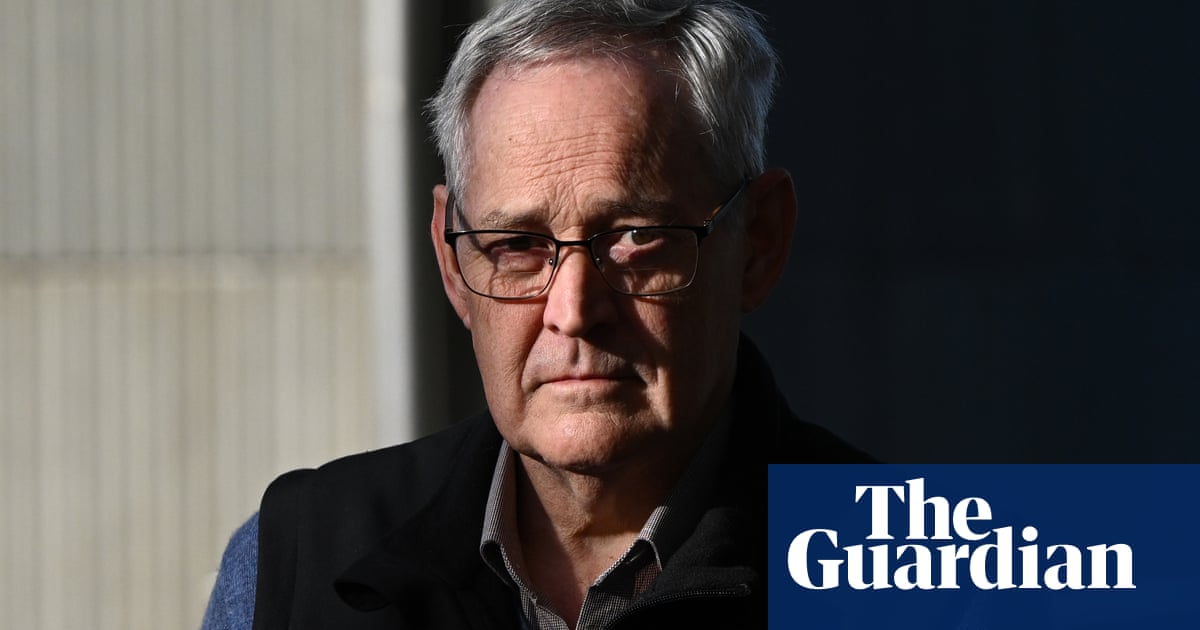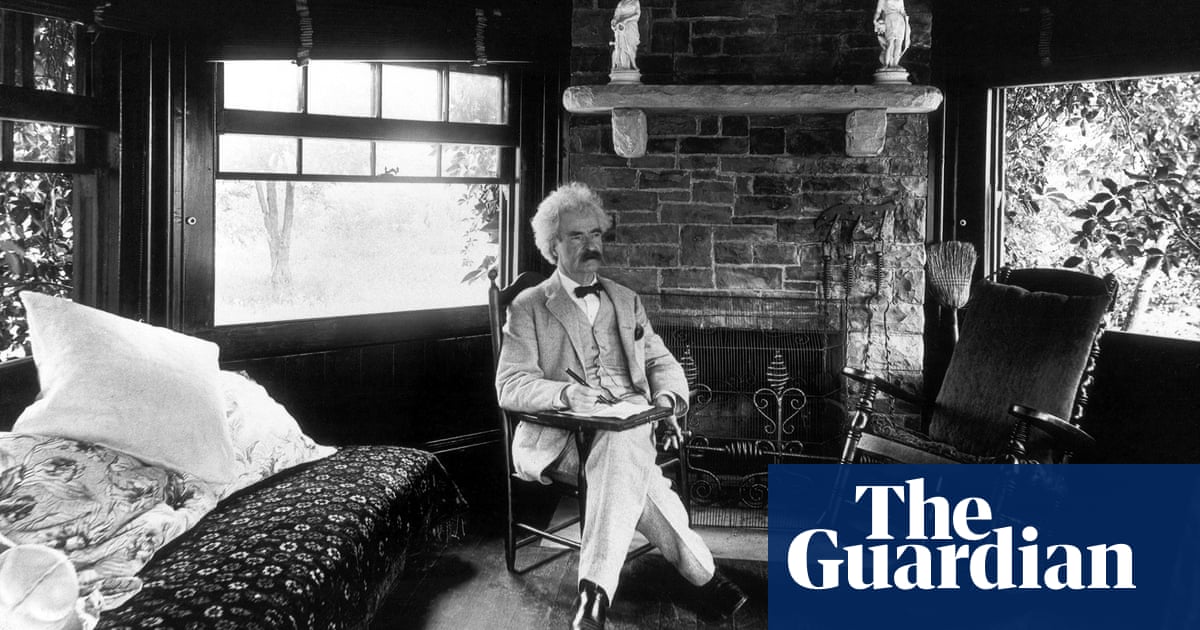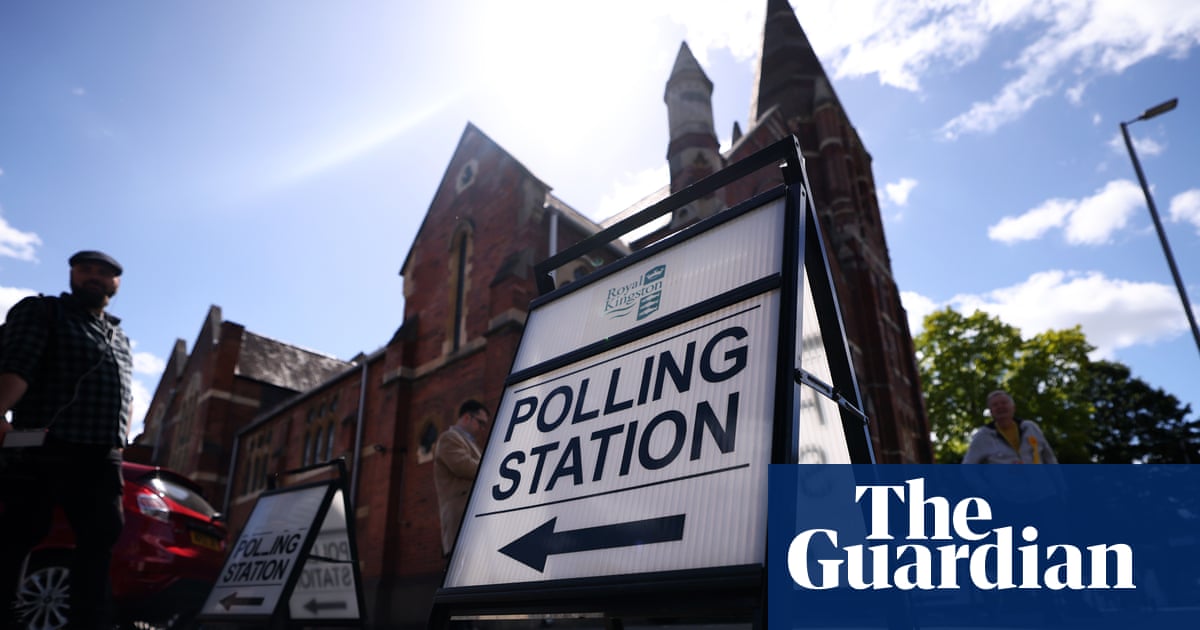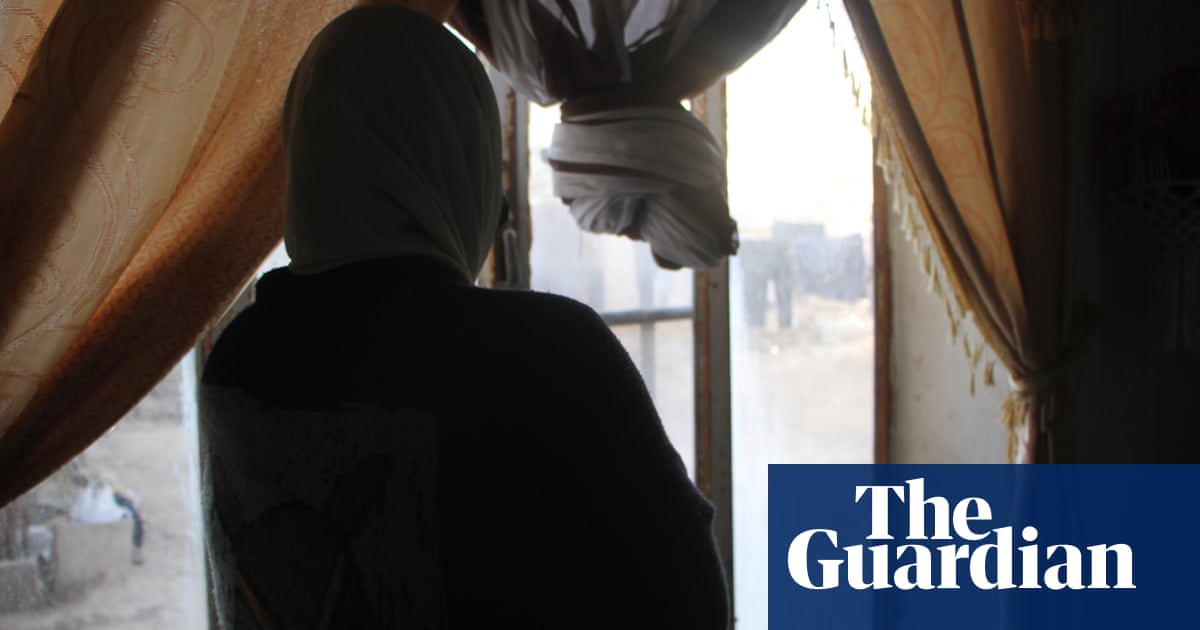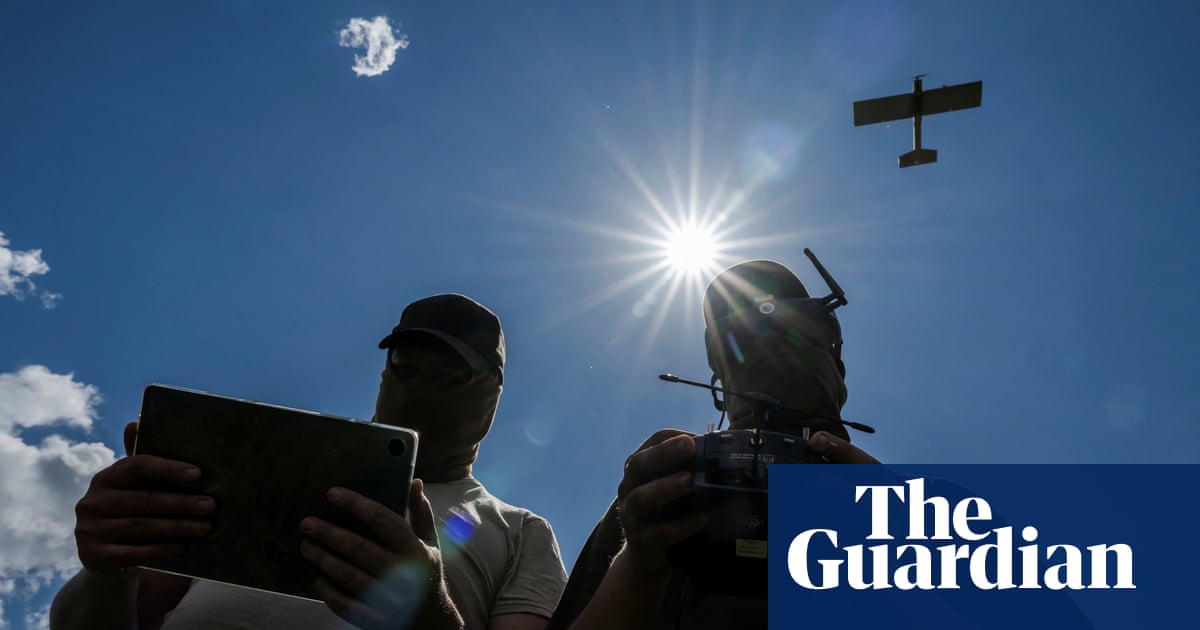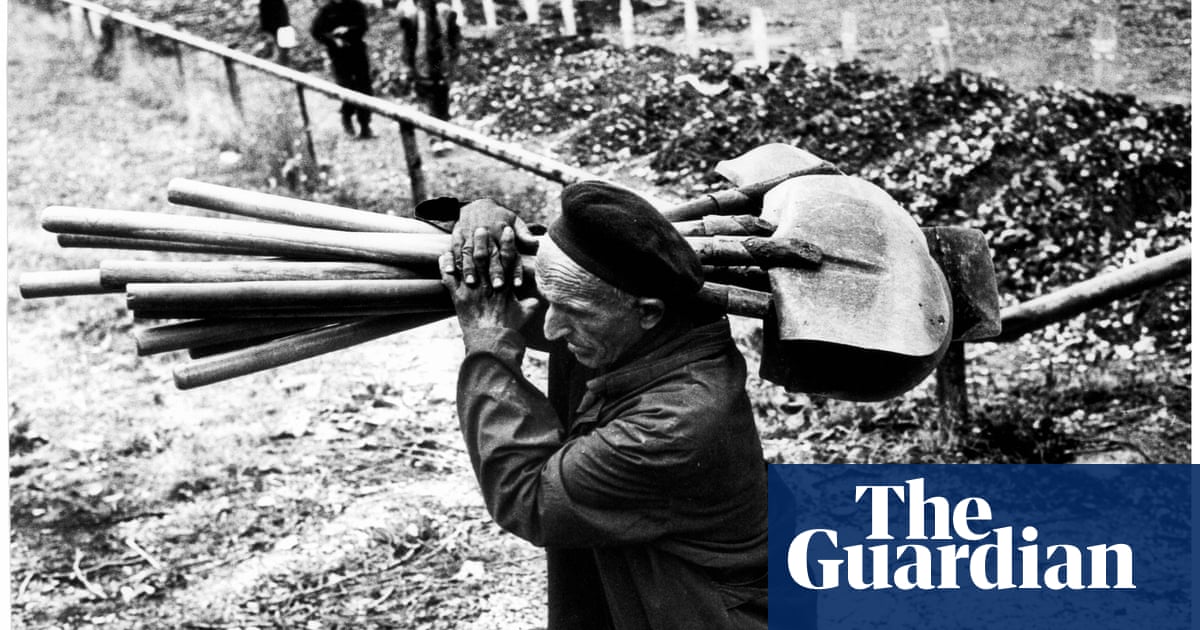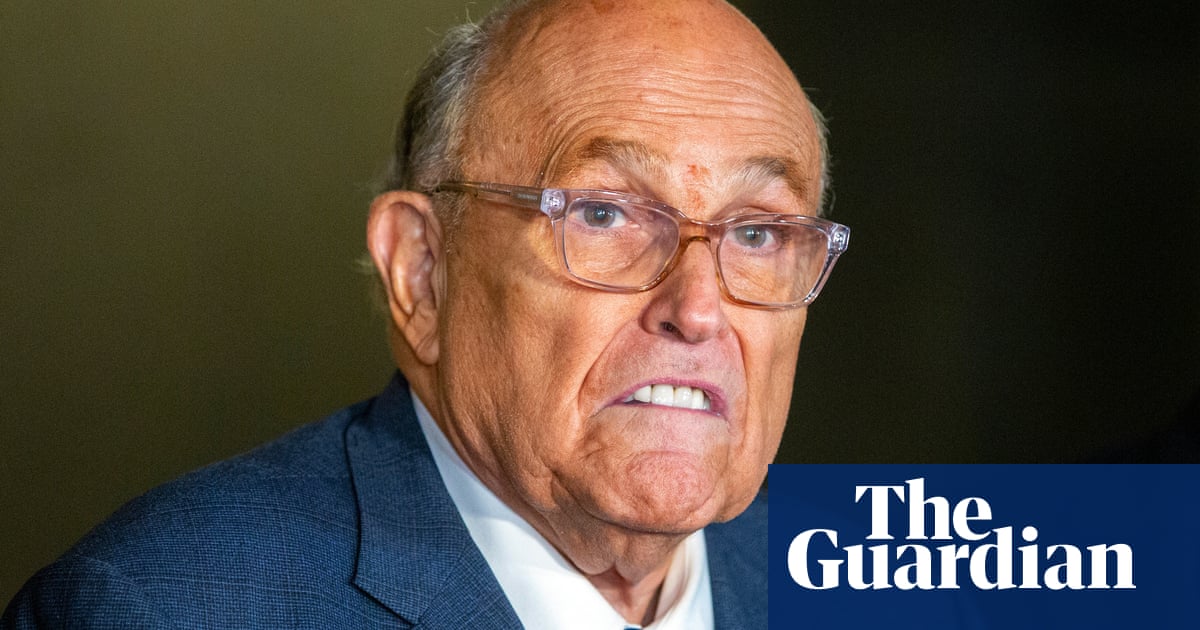A jury on Friday afternoon convicted the man who was charged with stabbing and trying to kill the author Salman Rushdie as he delivered a lecture at a literary gathering in western New York state in 2022.
Jurors in Chautauqua county quickly declared the defendant, Hadi Matar, 27, from New Jersey, guilty. They had received the case after lawyers delivered their closing arguments, wrapping up seven days of testimony that included a vivid account from Rushdie of how he was certain he was going to die after being rushed on stage by a man with a knife.
Matar faces up to 25 years in prison after convicted on charges of attempted murder of Rushdie and assault on the man he was talking to on stage, who was wounded in the frenzied attack.
The verdicts were delivered after less than two hours of deliberations. The judge set sentencing for 23 April.
The district attorney, Jason Schmidt, had played a slow-motion video of the attack for the jury on Friday morning, pointing out the assailant as he emerged from the audience, walked up a staircase to the stage and broke into a run toward Rushdie.
“I want you to look at the unprovoked nature of this attack,” Schmidt said. “I want you to look at the targeted nature of the attack. There were a lot of people around that day but there was only one person who was targeted.”
The shocking attack occurred more than 35 years after Rushdie, 77, the Indian-born British American novelist, was first placed under a death warrant, or fatwa, by Iranian religious leaders angry at his depiction of Islam in his 1988 novel The Satanic Verses.
The assistant public defender Andrew Brautigan told the jury that prosecutors had not proved that Matar intended to kill Rushdie. The distinction is important for an attempted-murder conviction. The defendant has pleaded not guilty.
“You will agree something bad happened to Mr Rushdie, but you don’t know what Mr Matar’s conscious objective was,” Brautigan said. “The testimony you have heard doesn’t establish anything more than a chaotic noisy outburst that occurred that injured Mr Rushdie.”
Matar had attacked with him knives, not a gun or bomb, his attorneys have said previously. And in response to testimony that the injuries were life-threatening, they have noted that Rushdie’s heart and lungs were uninjured.
Rushdie had earlier described to the court how he was on the stage at the open-air event, facing co-speaker Henry Reece and the audience, when “this assault began”.
“I was aware of this person rushing at me from my right-hand side. I was aware of someone with dark hair and dark clothes … I was struck by his eyes which seemed dark and ferocious to me … He hit me very hard … I saw a large quantity of blood pouring on to my clothes. He was hitting me repeatedly. Hitting and slashing.”
The author told jurors that as he was stabbed repeatedly “it occurred to me quite clearly I was dying”. He lost the sight in one eye as well as other lasting injuries.
Schmidt said while it was not possible to read Matar’s mind, “it’s foreseeable that if you’re going to stab someone 10 or 15 times about the face and neck, it’s going to result in a fatality”.
Audience members had rushed in to pull the attacker off. Schmidt reminded jurors about the testimony of a trauma surgeon, who said Rushdie’s injuries would have been fatal without quick treatment.
after newsletter promotion
He also slowed down video showing Matar approaching the seated Rushdie from behind and reaching around him to stab at his torso with a knife. Rushdie raises his arms and rises from his seat, walking and stumbling for a few steps with Matar hanging on, swinging and stabbing until they both fall and are surrounded by onlookers who rush in to separate them.
Rushdie is seen flailing, waving a hand covered in bright red blood. Schmidt freezes on a frame showing Rushdie, his face also bloodied, as he is surrounded by people.
“We’ve shown you intent,” Schmidt said.
The recordings also picked up the gasps and screams from audience members listening to Rushdie talk to Reese about keeping writers safe. Reese suffered a gash to his forehead, leading to the assault charge against Matar.
A separate federal indictment alleges that Matar, of Fairview, New Jersey, was motivated to attack Rushdie by a 2006 speech in which the leader of Iran-backed Hezbollah endorsed a decades-old fatwa, or edict, calling for Rushdie’s death.
Rushdie spent years in hiding. But after Iran announced that it would not enforce the decree, he traveled freely for the last 25 years. A trial on the federal terrorism-related charges will happen in US district court in Buffalo.
The Associated Press contributed reporting

 2 months ago
41
2 months ago
41






